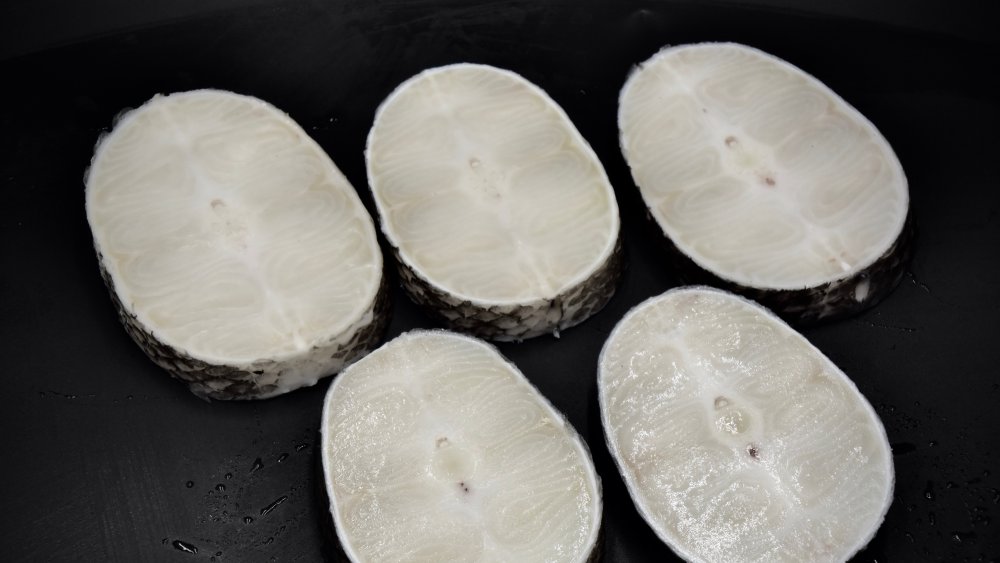You Really Shouldn't Eat Chilean Sea Bass. Here's Why
Before we talk about Chilean sea bass, we thought we might introduce you to the Patagonian toothfish, which ocean conservation site Oceana says is a large, deep-sea predator that comes from South America. They live near the bottom of the sea, where they can hunt other fish, squid, and crustaceans. They mature at a slow rate – these types of fish don't become reproductively active until they are eight to 10 years old.
It's important to know about the Patagonian toothfish because Oceana says this sea creature's name was changed for commercial purposes in 1977, to something it hadn't been called before: Chilean sea bass. The name change was carried out for the sole purpose of making it seem more appealing to seafood fans. And while experts aren't sure whether the fish is endangered or not, it is a fact that several of its populations have been cut down and depleted because of overfishing. The ubiquitousness of the name "Chilean sea bass" is such that the Patagonian toothfish's cousin, the Antarctic Toothfish, is also sold as Chilean sea bass. Unless labels are clearly spelled out, it is difficult to tell the difference between the two.
Overfishing has depleted Chilean sea bass stocks
There's another reason why you should keep moving if you see "Chilean sea bass" on a restaurant menu or in a supermarket. Because they are such bottom dwellers, fishermen use trawlers and longlines to try and snag the fish, and they end up damaging the ocean floor and ensnaring other animals including seabirds in the process. To top it all off, the Patagonian toothfish/Chilean sea bass isn't just an endangered species; eating it frequently can endanger you due to its high mercury levels (via One Medical).
We're not saying you shouldn't eat fish. In fact, Harvard calls fish a crucial part of a healthy diet. It analyzed 20 studies involving hundreds of thousands of participants who ate one to two three-ounce servings of fish, including salmon, herring, mackerel, anchovy, and sardines a week and found that eating fatty fish regularly can reduce the risk of dying from heart disease by as much as 36 percent. When you pick the right fish, you're adding nutrients like omega-3 fats, vitamin D, selenium, as well as plenty of protein to your diet. So by all means, have fish. Just not Chilean sea bass. Mother Nature and future generations of both Patagonian toothfish and humans will thank you.

